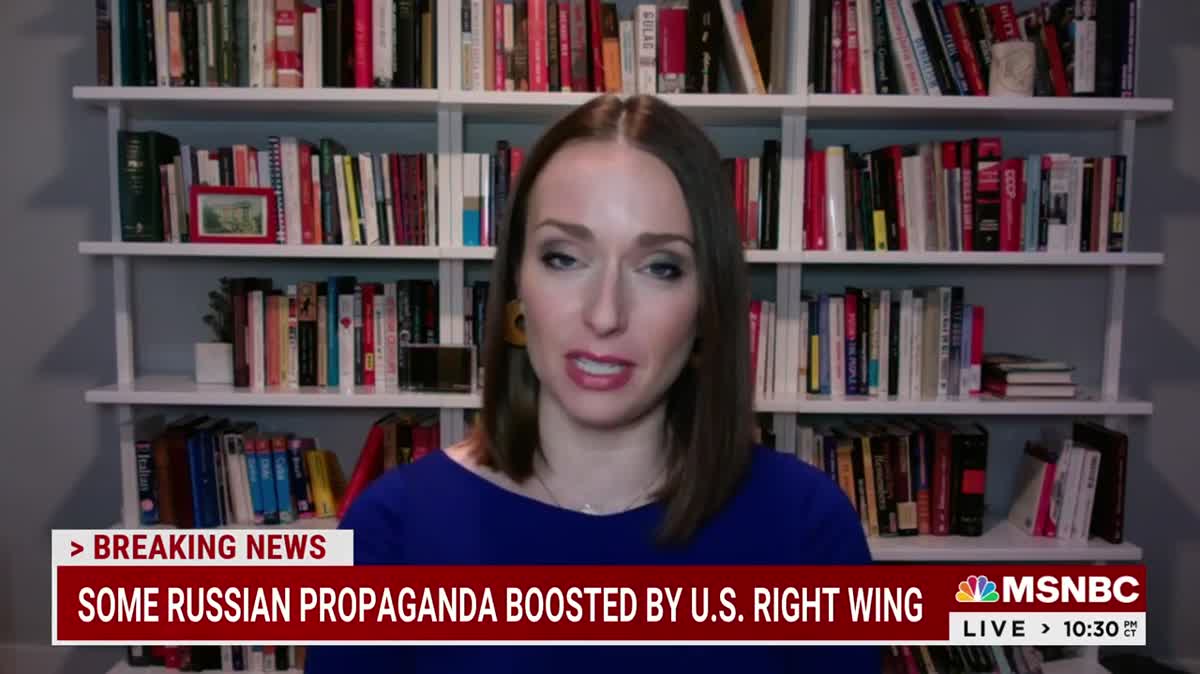Days after Russian tanks rolled into Ukraine, Maria, a 37-year-old mother in western Russia, downloaded a virtual private network, an effort to circumvent the blockade she saw descending across the country’s Internet.
The instinct proved correct. As the Kremlin began reversing years of relative Internet freedom and restricting American social networks and Western news sites, the VPN proved a lifeline, allowing her to chat with a friend in the United States and read updates on Facebook and Instagram, refreshing news about the war every 10 to 20 minutes. Maria thinks the conflict is a “tragedy” and says reading about it leaves her with “anger, sadness and empathy.”
But Maria says her mother believes what she sees on Russian-state run television, where the Russian invasion is portrayed as a righteous military campaign to free Ukraine from Nazis. The different visions have led to bitter arguments, and after one that left her mother in tears, Maria vowed to stop talking to her about the war.
Some Russians — often with social, educational or professional ties to the United States and Western Europe — are trying to pierce Russian President Vladimir Putin’s propaganda bubble, at times leaving them at odds with their own families, friends and co-workers. The war in Ukraine is only deepening the divide that was already present between young, tech-savvy people and an older generation who gets their news mostly from TV and has always been more comfortable with Putin’s vision of the country.
Nearly 85 percent of the country’s population is online, according to data from the World Bank. But only some of those people use American social networks. In 2022, about half of Russian Internet users were on Instagram, and only a fraction were on Facebook and Twitter, according to data from research firm eMarketer.
Many Russians who go online have come to rely on a range of digital tools to outmaneuver Russian censors. They seek out independent news about the war online, splitting them from others whose information comes from government propaganda that floods TV, government-backed websites and large swaths of social networks that remain unrestricted, like Telegram or VK, which are home to many pro-government groups.
This ideological gulf was reflected in interviews with a half-dozen people in Russia, who in most instances spoke on the condition of anonymity to avoid violating the country’s fake news law.
“Shock, hatred and depression,” are the words Mikhail Shevelev, a Moscow-based journalist, uses to describe the “very serious” and “drastic” divide that has emerged between people reading independent online sources and those who primarily get their news from TV.
“It’s really difficult for anyone — even Russians who do not live in Russia — to understand the scale of absolutely illogical perceptions of information and outright lies,” he said.
Older Russians make up the primary viewership of Russia’s state television news, which has been
flooded with reports of fake U.S. biowarfare labs and Ukrainian “Nazis.”
At the same time, Putin is using increasingly advanced censorship technology. In addition to the recent restrictions on Facebook and Twitter, Russia has blocked the websites of many major Western media outlets, including Britain’s BBC and Germany’s Deutsche Welle. In response to sanctions and public pressure, major tech companies including Apple, Microsoft and Amazon have suspended some sales and services in the country, further contributing to what’s being called a “digital iron curtain.”
Still, Russians seem determined to get around the restrictions. According to the digital intelligence firm Sensor Tower, the top five VPNs in Apple’s App Store and the Google Play store were downloaded 6.4 million times between Feb. 24 and March 13. In the three weeks before Russia invaded Ukraine, the same VPN apps were downloaded only 253,000 times.
Independent Russian media organizations, which have moved their reporters outside of the country, still report some of what’s happening in Ukraine, and there are still some discussions happening on community groups on VK, Russia’s most popular social media network, according to Russians who spoke to The Washington Post. Some Russians are also finding independent news on Telegram and YouTube, which Russia has not yet blocked.
Alexander, a tech worker from Moscow in his 20s, said he’s aware of people who’ve unfriended each other online, writing posts about how they’ll never shake a certain person’s hand again because of their opinion on the war. “My aunt, she stopped talking to a few of her friends whom she knew for ages,” he said.
Bot accounts, widely assumed to be run by government employees, muddy the picture by commenting and posting pro-government messages on VK, said Daria, a Moscow resident in her 20s. “It’s sometimes difficult to distinguish a bot from a genuine government supporter.”
Some Russians who use VPNs are finding the posts and arguments around the war too intense and are pulling back.
Lucy, a 29-year-old designer from the North Caucasus region in Russia, said she has cut back on using Instagram because of angry comments against Russians. She has relatives in Ukraine who’ve had to flee the Russian attack, and said she is half Ukrainian herself. But the heated environment online has pushed her away from engaging on social media.
“At the beginning, I empathized a lot with them. I might not be there, but as I’m a very sensitive person I can feel the pain they’re going through,” she said. As the war progressed, she began getting death threats online, and she unfollowed many of the Ukrainian accounts she had been following. “It’s very hard to be blamed for something you don’t do personally,” Lucy said.
Other young Russians said these online attacks on Russians are pushing some toward a more pro-war position in line with the government. One channel on Telegram was full of memes and posts decrying “Russophobia,” and saying that Western countries were supporting Ukraine out of hatred against Russians.
One pro-government Telegram group, with over 110,000 subscribers, posted a video of what it claimed were volunteers heading to Ukraine to help with the invasion. “We don’t need the whole world with us, dear friends. It is enough if all the Russian peoples are with us,” read the caption under the video.
Putin’s years-long campaign to tighten his grip on Russia’s once-open information ecosystem intensified in November 2019, when the country’s “sovereign Internet” law came into force. That law required Internet providers in Russia to install government-issued black boxes on their premises that would enable the government to control Web traffic by giving the Russian government the power to slow a site from loading or block it entirely.
Some people in Russia are also turning to Tor, an open source system that enables anonymous communications, to visit services. Twitter and Facebook have built versions of their platforms that work with the software. Artem Kozliuk, head of the Russian digital rights group
Roskomsvoboda, said that he and others in the country are navigating an increasingly complex mix of VPNs and special browser plug-ins to access basic information on both their laptops and phones. His organization is putting together a guide to help people navigate the different services.
“Now information goes through many proxy systems, through many obstacles before it reaches users,” he said.
Despite the surge in VPN interest, the Kremlin’s crackdown has made many fearful of sharing their political views online. And the two-tier information system continues to rule Russian opinion.
“A huge number of Russians, including me, don’t comment and don’t share their opinion on social media in any way,” Daria said. “People who watch television do believe that there are no civilian casualties and our government only fights against nationalists who oppress Russians living in Ukraine … People who read and watch government-controlled sources aren’t exposed to pictures of destroyed cities and fleeing Ukrainians.”
Ilya Yablokov, a lecturer at the University of Sheffield who studies the Russian Internet, said he believes Russia’s censorship abilities so far have allowed the government to succeed in controlling the narrative inside the country’s borders. But that may not always be the case
“It’s the control of power, it’s the control of narrative, it’s the control of population,” he said. “The question is for how long are they going to be winning?”











